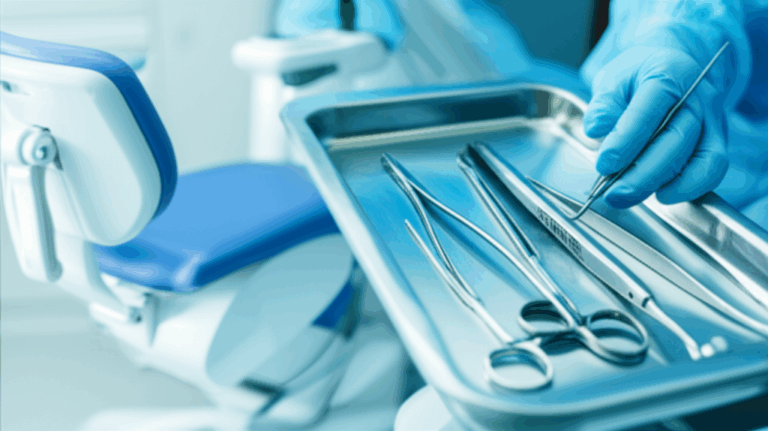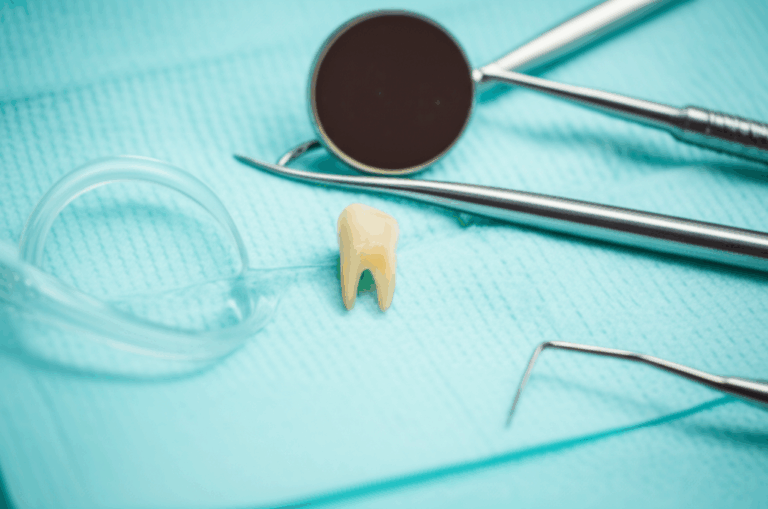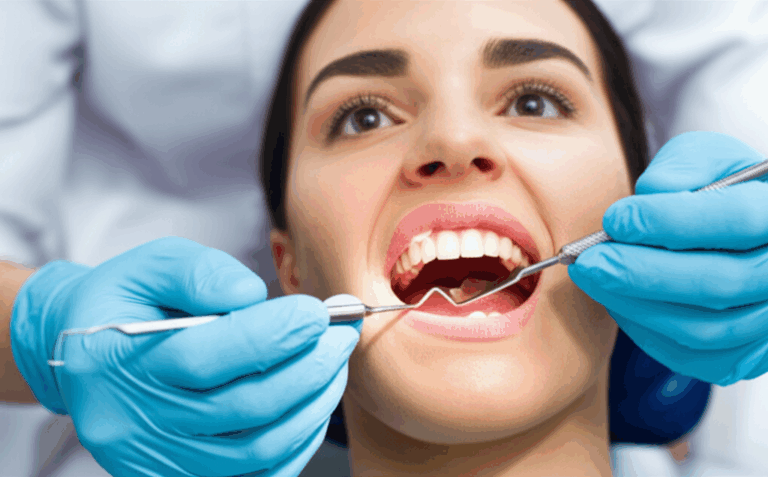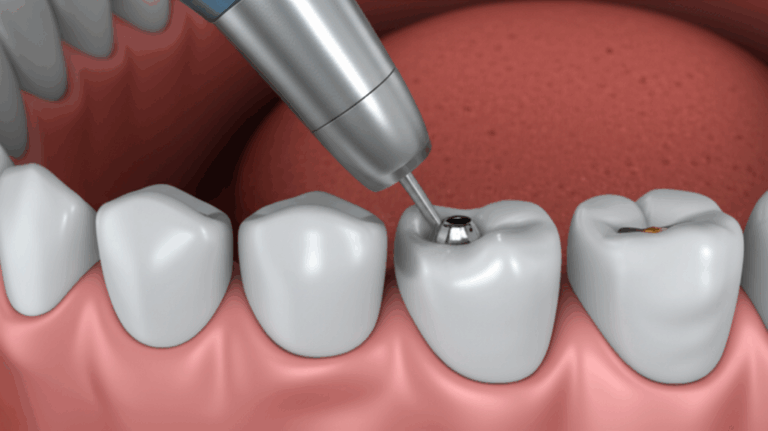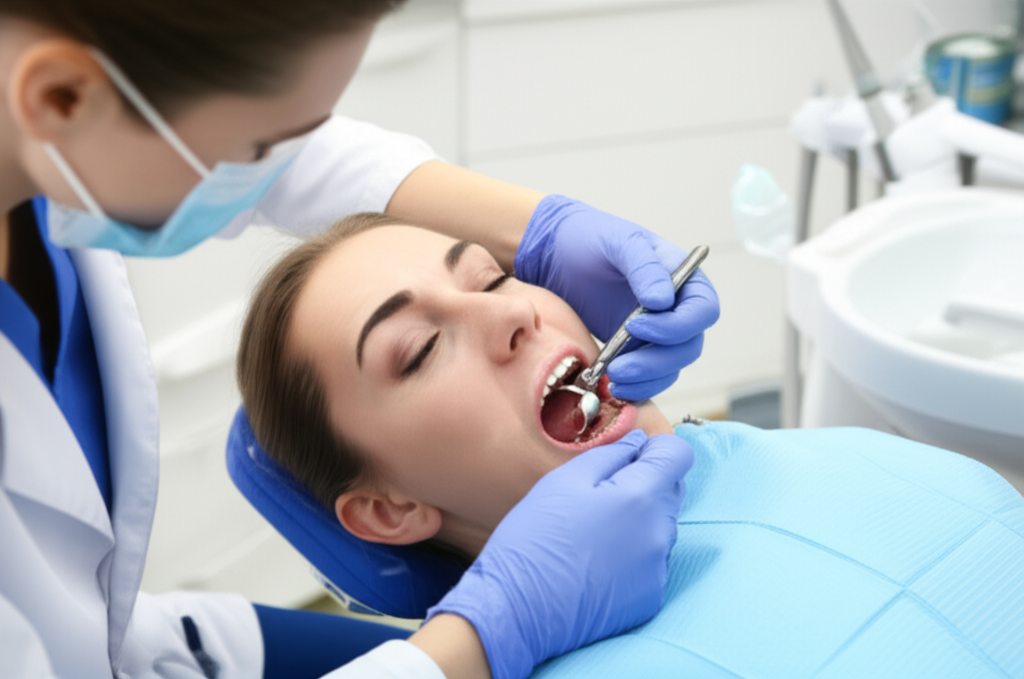
Can a Dentist Help You Stop Snoring? The Dental Sleep Medicine Connection
Snoring isn’t just a funny noise you make at night. It can creep in and mess up your sleep, make your partner mad, and could even mean there’s something serious going on with your health—like obstructive sleep apnea. Here’s the surprise: Your dentist might be just the person to help you stop snoring for real. Keep reading to see how dentists can help stop sleepless nights, why dental sleep medicine matters, and how you could enjoy much quieter and better sleep again.
Table of Contents
Introduction: Why Should I Care About Snoring?
Ever wake up feeling tired, even though you slept all night? Or maybe your partner keeps poking you because your snoring is super loud? It’s easy to think snoring is only a harmless sound, but that’s not always true.
Lots of people—about 45% of men and 30% of women—snore at least every now and then. A little snoring may not sound like a problem, but loud or regular snoring is often a sign of something bigger—and it can hurt your health in ways you didn’t know.
I’m here to show you why snoring matters, how dentists can help, and what you can do about it. If you’re tired of bad sleep, rough mornings, or worried about sleep apnea, this article will show you what you can do.
What Causes Snoring? Let’s Break It Down
Snoring happens when air tries to move through a partly blocked airway in your throat while you sleep. It’s like water squeezing through a narrow pipe—it gets noisy. When you sleep, the muscles in your mouth, throat, and tongue relax. Sometimes, this makes the soft tissues shake as air moves past.
What makes snoring worse?
- Extra weight around your neck
- Drinking alcohol or taking sleeping pills before bed
- Sleeping flat on your back
- A small jaw or mouth
- Big tonsils in kids
Is it simple snoring or something serious? If you only snore once in a while, it’s probably just a bit of blockage. But loud, regular snoring—especially if you’re tired in the day—could mean you have obstructive sleep apnea (OSA). That’s when your airway keeps closing, and you stop breathing for a bit.
Snoring or Something More Serious?
Not all snoring is the same. Here’s how to tell the difference.
What’s Simple Snoring?
- Noise from your throat or nose when soft tissue shakes
- Your breathing doesn’t actually stop
- More annoying than dangerous
What’s Obstructive Sleep Apnea (OSA)?
- Airway gets blocked; breathing does stop (sometimes hundreds of times each night)
- Each stop can last 10 seconds or longer before you gasp for air
- Can cause big problems: Tiredness in the day, high blood pressure, risk of heart trouble, stroke, diabetes, memory trouble, grumpiness, and even accidents
Problem: Many people—millions—have OSA and don’t know it. Snoring is a warning sign. Ignoring it can be risky.
Why Ask a Dentist About Snoring?
You might ask, “Isn’t this a doctor’s problem?” Here’s why a dentist can help: Dentists know the mouth, jaw, and airway really well. During your regular check-ups, they can spot signs of snoring and sleep apnea that others miss.
Dentists are trained to:
- Look at your jaw, teeth, tongue, and throat
- Spot warning signs like a small airway or teeth flattened from grinding
- Notice if your mouth is crowded—another risk for airway troubles
Lots of dentists now get extra training in dental sleep medicine. This field looks at how your mouth and jaw affect breathing when you sleep. Dr. Joe Dental, an expert, says: “Patients are surprised when they find out I can help their snoring with something as easy as an oral appliance.”
A regular dental checkup can be your first step to better sleep.
How Do Dentists Check for Snoring Problems?
Here’s what usually happens when you ask your dentist.
Screening
Dentists often start with some simple questions:
- Do you snore loudly or often?
- Has anyone seen you stop breathing at night?
- Are you tired even after a full night’s sleep?
- Do you wake up with a headache, dry mouth, or sore throat?
They might use some forms, like the STOP-BANG questionnaire, to check your risk for sleep apnea.
Oral Exam
Next, the dentist checks your:
- Mouth, tongue, soft palate, and uvula
- How your jaw moves and your bite
- Wear on your teeth (signs of grinding)
- Airway space
Sometimes, they use special 3D pictures to see even better.
Referral for a Sleep Study
If it looks like you might have sleep apnea, your dentist might send you for a sleep study—either at home or in a sleep center. You’ll wear special gear that records your breathing, oxygen, and snoring. The results help decide the best way to treat you.
What Dental Solutions Stop Snoring?
Dental treatment for snoring doesn’t mean drilling or surgery. Most of the time, it just means wearing a custom mouth device at night that keeps your throat open.
Where Do These Devices Come From?
These are made by special labs, like a high-quality china dental lab, to fit just your mouth.
Main Types of Appliances
1. Mandibular Advancement Devices (MADs):
These look like a sports mouthguard, but they gently push your lower jaw forward. This opens your airway so your tongue or soft palate don’t block it.
2. Tongue Retaining Devices (TRDs):
These keep your tongue forward so it can’t fall back and block your throat.
Both of these are:
- Custom-fit by your dentist
- Comfy and safe
- Easy to use and clean
For some people with bad sleep apnea or jaw problems, a dentist might suggest other options, like braces, palatal expanders, or sometimes surgery.
How Does Oral Appliance Therapy Actually Work?
It works by changing the shape, so air flows better. Since snoring and sleep apnea happen when your airway closes, these devices hold things in place so that doesn’t happen.
How It Works, Step By Step
- The device goes over your upper and lower teeth.
- It moves your jaw forward a little.
- This opens your throat—air moves easily, and soft tissue doesn’t vibrate.
- Less tissue shaking means less snoring (or none at all).
- Your oxygen stays steady all night—no more danger from low oxygen.
Are Over-the-Counter Devices Good Enough?
You might have seen cheap “snore guards” online or at the store. The truth is: Only a custom device from your dentist (with help from a digital dental lab or a night guard dental lab) will fit right and work safely. Badly fitting or generic ones can hurt your jaw or make things worse.
Who Can Use These Dental Snoring Solutions?
Not everyone can use these mouth devices. Here’s who benefits most.
Good Candidates
- People with simple snoring: If you snore but don’t have bad sleep apnea, a mouth appliance is often enough.
- People with mild to moderate OSA: Studies show in 50–70% of these cases, these devices get blocked breathing events below 10.
- People who can’t use CPAP machines: If you’ve tried CPAP but hate the mask, tubes, or noise, oral appliances are a quiet, comfy choice.
- People wanting no surgery
Not Ideal Candidates
- People with lots of missing teeth or gum problems (the device needs healthy teeth)
- People with bad jaw pain
- People with severe sleep apnea (sometimes CPAP or surgery is needed)
A quick dentist visit can help you find out if it’s right for you.
What Are the Benefits and Risks of Dental Treatments for Snoring?
The Good Things
- No surgery, comfy: No operation or shots
- Quiet and simple: No tubes or machine noise like with CPAP
- Easy to take with you: Great for travel
- Fewer side effects: No dry mouth or face marks from straps
- Helps your relationship: No more getting kicked out of bed!
Big studies say 80–90% of people like their custom mouth appliance and sleep much better.
Possible Downsides
- Some people have mild jaw soreness at first (usually gets better quickly)
- Maybe a bit more saliva or a dry mouth—a quick drink of water helps
- In rare cases, a little tooth shifting after many years (your dentist checks for this at follow-up visits)
The fix? Go to your check-ups. Your dentist will make sure it fits, and can fix it if needed.
How Do I Find the Right Dentist for Snoring Help?
You wouldn’t see just any dentist for braces—you want a specialist. Same goes for snoring.
What to Look For
- Special training: Your dentist should have extra training in dental sleep medicine, maybe even a special certificate.
- A good record: Ask for patient stories or check reviews on sleep treatment.
- Teamwork: The best dentists work with sleep doctors, ENT doctors, and others to make sure you get the right diagnosis and treatment.
The best dental partner will use a trusted digital dental lab for top-notch, custom devices.
Remember: Your mouth is unique—your snoring fix should be too!
Case Studies and Real Results
Here are two real-life examples of how dental sleep medicine can really help.
Case 1: The CPAP Dropout
Paul, 55, had moderate sleep apnea and tried a CPAP machine. But he hated the mask and noise. After two years with poor sleep and cranky mornings, he switched to a custom mandibular advancement device from a top night guard dental lab. After a month, Paul’s sleep study showed breathing blocks dropped from 20 to 7 per hour. He now wakes up fresh—and his wife says the nights are much quieter.
Case 2: The Snoring Solution
Sarah, a 40-year-old teacher, snored so loudly her husband slept on the couch! She didn’t have sleep apnea, but she wanted her bed and peace back. A simple, dentist-made mouth appliance stopped her snoring. Two weeks later, her husband was back—and both were feeling more rested and happy.
Frequently Asked Questions
Q: Will my insurance pay for a dental appliance for snoring?
A: Many insurance plans, including Medicare, pay for custom oral appliances when a doctor says you need it for sleep apnea. Ask your dentist about what’s covered and your plan’s details.
Q: Is this just for grown-ups?
A: Kids don’t usually get oral appliances, but dentists are good at spotting airway problems early—sometimes they fix things with braces.
Q: Do these devices work for really bad sleep apnea?
A: Mouth devices work best for mild or moderate OSA. Bad cases may need stronger treatments, but these are still good if you can’t use CPAP.
Q: Could a dentist suggest losing weight or other tips?
A: Yes! Dentists might suggest lifestyle changes—like losing weight, not drinking before bed, or sleeping on your side—to help you more.
Summary: What Should I Remember?
- Snoring is not just a sound—it’s a sign.
- Dentists are key experts for finding and treating snoring and mild to moderate sleep apnea.
- Most dental treatment is easy—a custom mouth device from a china dental lab or digital dental lab can help a lot.
- Oral appliance therapy is easy to use and works well for most.
- Pick a dentist with special training in dental sleep medicine for the best results.
- Don’t ignore snoring—it could hurt your health. Get help soon.
Takeaway Table
| Problem | Why It’s Bad | Dental Solution | Result |
|---|---|---|---|
| Snoring | Bad sleep, tired days, upset partners | Custom oral appliance (MAD or TRD) | Quiet nights, better mornings |
| Untreated OSA | Higher risk of heart, stroke, diabetes | Dental sleep medicine + sleep test | Healthier life, better oxygen |
| CPAP Intolerance | Won’t use, bad sleep | Dentist-made device | More comfy, better use |
Ready to kick snoring out of your bedroom?
Talk to your dentist, ask about dental sleep medicine, and start sleeping better tonight!

